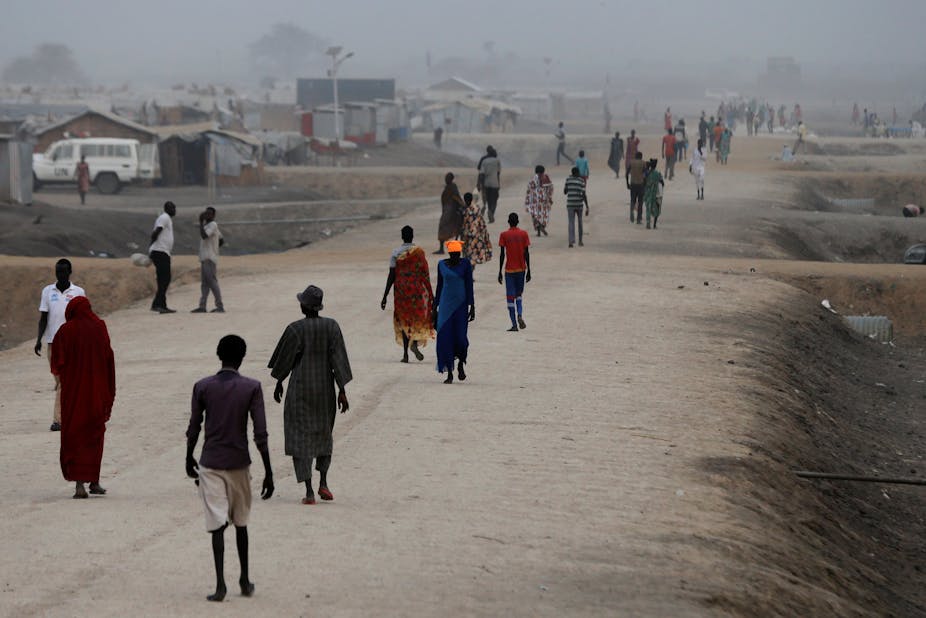Getting physically active is important no matter where you live: obesity and physical inactivity are serious public health problems – in both developed and developing countries.
In sub-Saharan Africa the crisis of inactivity can be linked to the industrial and electronic revolutions taking place in the region. There’s been a marked shift from high activity lifestyles to a more sedentary pace. Known as physical activity transition, the process has already been seen in developed countries. The transition is always marked by a shift in people’s behaviour. They migrate from high energy expenditure workplace environments such as mining, forestry and farming to more relaxed occupations and lifestyles.
Now sub-Saharan Africa is experiencing similar changes and challenges. The result is that countries like Kenya are now fertile environments for non-communicable diseases like diabetes and cancer.
Given this, it’s become more important than ever to understand the twin relationship between the change in the foods we eat and how often we exercise.
Benefits of physical activity
Some of the benefits of being physically active include:
Increased efficiency of heart and lungs;
Reduced cholesterol levels;
Increased muscle strength;
Reduced blood pressure; and
Reduced risk of major illnesses such as diabetes and heart disease.
Regular physical activity gives you more energy to perform daily chores. It helps you to deal with stress better and improves the quality of your sleep.
You are also guaranteed a better appetite, better skin and muscles that are better toned. Importantly, regular physical activity can help with the management of already existing medical conditions.
Regular exercise regimes also mean that adults have a lower likelihood of dying from coronary heart diseases, high blood pressure and stroke. They are also more protected from developing type 2 diabetes, metabolic syndrome colon, breast cancer and depression.
Environments that invite unhealthy behaviour
Sadly the physical activity transition happening globally is catching up with many developing countries including Kenya. This is true even among children.
It hasn’t always been like this. Engaging in daily active play and physical activity is a cornerstone of the lives of people in Kenya, and elsewhere on the continent, since time immemorial.
A healthy and active way of life can be traced back to most African communities that religiously led a Palaeolithic lifestyle that encouraged a hunter and gatherer way of life.
The nomadic way of life consisted of feeding on roots, tubers, nuts, fruits, vegetables, white meat and engaging in physically demanding activities like farming or walking long distances during herding.
But rapid urbanisation has changed all that. The rising concern about obesity in sub-Saharan Africa is directly related to rapid urbanisation and a reduction in physical activity. More and more people are are living in obesogenic environments. These promote gaining weight but are not conducive for weight loss. This can be at home or in the work place.
In addition, in countries like Kenya the fight against the negative health effects of physical inactivity is being slowed down by the strong social cultural beliefs. In many developing countries roundness (or fatness) is often a symbol of wealth, good life and therefore deserves prestige.
The situation is being exacerbated by increasing use of technologies like mobile phones, computers, the internet and satellite television. All have reduced the need and desire for children, youth and even adults to engage in physical activity.
At the same time as people are doing less exercise, they’re eating more energy dense food. This is exposing them to major risk factors associated with lifestyle triggered diseases like heart attacks and strokes, cancers, chronic respiratory diseases and diabetes.
These diseases already disproportionately affect low and middle income countries which account for nearly three quarters of non-communicable disease deaths – about 28 million – in the world.
The way forward
There has been an urgent global call to address the serious public health challenges posed by poor eating habits and lack of exercise. One of the interventions is the United Nations Sustainable Development Goals.. Kenya has set its own targets under its Kenya Vision 2030.
But to reverse the current trends people need to get active. The recommended physical activity for health and wellness is 60 minutes of moderate to vigorous physical activity daily for those between the age of five and 17 years and for adults at least 30 minutes.
The onslaught of non-communicable diseases can only be reversed if we all observe healthy and active lifestyles.

